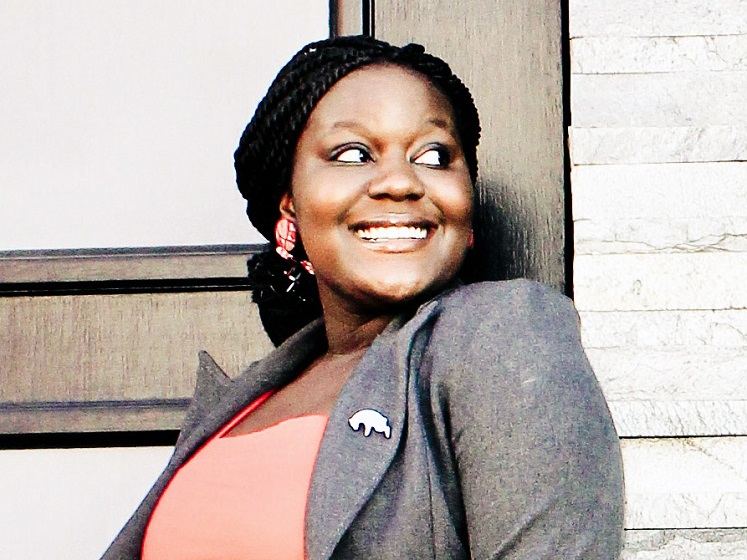 Masana Ndinga-Kanga
Masana Ndinga-Kanga
Masana Ndinga-Kanga is Programme Manager at the Centre for the Study of Violence and Reconciliation and part of the first cohort of Atlantic Fellows for Social and Economic Equity at LSE. She has worked at the Robert F Kennedy Centre for Justice and Human Rights in Washington DC and was the first Machel-Mandela Fellow at The Brenthurst Foundation in Johannesburg. She frequently contributes to Mail & Guardian’s Thought Leader, the Times and Huffington Post in South Africa.
Tell us about your work at the Centre for the Study of Violence and Reconciliation (CSVR) in South Africa
I currently work as a Programme Manager at the CSVR, where a multi-disciplinary approach is used in research, policy formation, community interventions, service delivery, education and training. The Centre’s primary goal is to use its expertise to contribute to peacebuilding, the promotion of human rights as well as preventing violence in Africa, and the global South. Some of the work that I am involved in includes a study of the South African social contract, exploring the link between violence and inequality, a study of the black middle class and a multi-country comparative study on transitional justice in the African context and an exploration of the relationship between international peace-building development norms and local peace-building innovations. I work with a team of multi-disciplinary researchers, clinicians, advocacy and community intervention specialists in our Johannesburg office.
What do you enjoy most about your role?
I enjoy the working culture and vibrancy of the team. I find that the multi-disciplinary approach and depth of practical experience at the organisation provides incredible insight into the nature of the opportunities and challenges for addressing the continent's most pressing needs. Our emphasis on building partnerships with multiple stakeholders and its integrated and consultative approach is refreshing.
In your opinion, what are the main challenges for preventing violence and building reconciliation in South Africa?
The pervasiveness of socioeconomic inequality is particularly difficult in South Africa. The fault lines in economic, social and political identities overlap along racial and class lines. Ineffective local governance can mean that grievances towards the state escalate into violence following slow responses from politicians. However, the activist culture of grassroots movements across the country and a relatively strong and independent judiciary create resiliencies that mitigate against these challenges, attempting to hold the state and business accountable.
What led you to study at LSE?
Growing up in post-colonial South Africa, I was deeply affected by the marked absence of socioeconomic justice in my education that included an unreformed pedagogy and curriculum. Despite my love of learning, I felt alienated from the contents of my education until I encountered pan-Africanist literature, including that of Kwame Nkrumah – who studied at LSE. That and the quality of scholars in African Development inspired me to apply, and I knew from my early teens that I wanted to study at LSE. The diversity of the student body and the richness of the multi-disciplinary curricula were very important to me, and of course being in London – a melting pot of lived experiences!
How did LSE influence your career?
The greatest thing I took away from LSE is to interrogate everything. When taking a class taught by Thandika Mkandawire I learned that long-standing assumptions about the African continent are often taken as fact without enough deliberation. Interrogating the political, economic and social agendas of multiple stakeholders provides a more holistic approach to learning, and consequently analysing, the dynamics in African countries – each of which are unique. This interrogative approach has helped me navigate what is often a contentious research and policy space, and work towards allowing these two fields to speak to one another.
What are your memories from your time at the School?
Quite honestly, my time at LSE was rather challenging – the city was really big and daunting initially. But London became a place that I still hold dear to this day, especially as I discovered who stocked South African biltong, rooibos and chutney – which I shared with friends from other countries. I also enjoyed hearing Barney Pityana speak for the first time, and showing my younger sisters around London during a snowy winter. And mulled wine!
Read more
Atlantic Fellows programme for Social and Economic Equity at the International Inequalities Institute
LSE alumni profiles